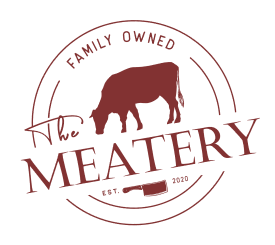Why is Japanese Wagyu So Healthy?
One of the standout features of Japanese Wagyu beef is its unique fat composition, which contributes significantly to its health benefits. Wagyu cattle genetically produce beef rich in monounsaturated fats, especially oleic acid. This "good" fat is famously present in olive oil and avocados, recognized widely for promoting heart health. Eating Wagyu beef in moderation can thus help lower "bad" LDL cholesterol and reduce the risk of heart disease.
Moreover, Wagyu is packed with conjugated linoleic acid (CLA). CLA is a beneficial fatty acid with impressive anti-inflammatory properties, known for improving body composition and potentially reducing the risk of certain cancers. Additionally, Wagyu beef supplies essential nutrients such as high-quality protein, vitamins (particularly B vitamins), and minerals like iron and zinc, making it a wholesome and nutritious addition to any balanced diet.
Understanding the Japanese Wagyu Grading System
Japan's stringent grading system ensures consistent quality and helps consumers easily identify premium Wagyu beef. Managed by the Japanese Meat Grading Association (JMGA), this system evaluates several crucial aspects, including marbling, color, texture, firmness, and overall appearance.
The prestigious A5 grade represents the absolute pinnacle of Wagyu quality, showcasing extraordinary marbling, vibrant color, and unparalleled tenderness. Below A5 are the A4 and A3 grades, which still offer outstanding quality but differ slightly in marbling and texture. Further down, grades B and C are less marbled yet still provide a delicious eating experience.
This transparent grading system maintains consumer confidence, allowing everyone from chefs to home cooks to select Wagyu beef that best suits their culinary needs.
Authenticity and Origin: Japan’s Pride
Authenticity is central to the reputation and quality of Japanese Wagyu. Only beef produced from cattle bred, raised, and processed in Japan can officially carry the prestigious label "Japanese Wagyu." Strict regulations protect Wagyu authenticity, ensuring global consumers always experience genuine, high-quality beef.
Japan's unique climate, meticulous traditional farming practices, and fertile terrain significantly shape Wagyu’s distinct flavor and tenderness. Protecting this authenticity is not only a matter of national pride but also safeguards a culinary heritage passed through generations. Thus, consumers globally can trust they’re experiencing Wagyu beef exactly as intended.
Breed and Regional Variations in Japanese Wagyu
Not all Wagyu is the same—breed and region significantly influence the taste and characteristics of the beef. Japan recognizes four primary Wagyu breeds: Japanese Black (Kuroge), Japanese Brown (Akage), Japanese Shorthorn (Nihon Tankaku), and Japanese Polled (Mukaku). Each breed offers distinct characteristics and varying degrees of marbling, flavor depth, and texture.
Regional variations also play a significant role in Wagyu diversity. Some areas are particularly famous, such as the Hyogo Prefecture, known worldwide for Kobe beef—arguably the most celebrated variety of Wagyu. Other regions, including Matsusaka, Omi, and Yonezawa, each produce distinctively flavored Wagyu celebrated globally. Climate, diet, local traditions, and specific rearing practices all uniquely shape these regional varieties.
Why is Japanese Wagyu So Expensive?
Several intertwined factors explain the famously high price tag associated with authentic Japanese Wagyu beef. First and foremost, the production of Wagyu is incredibly labor-intensive. Wagyu cattle require specialized care, including regulated feeding programs, stress-free environments, and meticulous attention throughout their lifespan. These rigorous practices significantly increase production costs.
Additionally, Japan’s strict grading criteria mean only a small percentage of cattle meet the exceptional standards required for the top-grade A5 label. This exclusivity further drives up prices, as demand for these premium cuts far exceeds supply.
Global demand has surged dramatically in recent years, as Wagyu's unique qualities have increasingly captivated chefs, foodies, and discerning consumers worldwide. As demand climbs while supply remains tightly controlled and limited, market forces naturally push prices even higher.
Conclusion: Japanese Wagyu is an Unparalleled experience
Japanese Wagyu is much more than luxury beef—it’s a carefully cultivated culinary masterpiece steeped in tradition, rich in nutrients, and unique in flavor and texture. From its significant health benefits to the meticulous grading system ensuring impeccable quality, every aspect of Wagyu production contributes to its status as the world’s premier beef.
By understanding what makes Wagyu uniquely exceptional—from its authentic origin and diverse regional varieties to the reasons behind its premium price—consumers can deepen their appreciation for this exquisite delicacy, truly setting the gold standard of fine dining.










